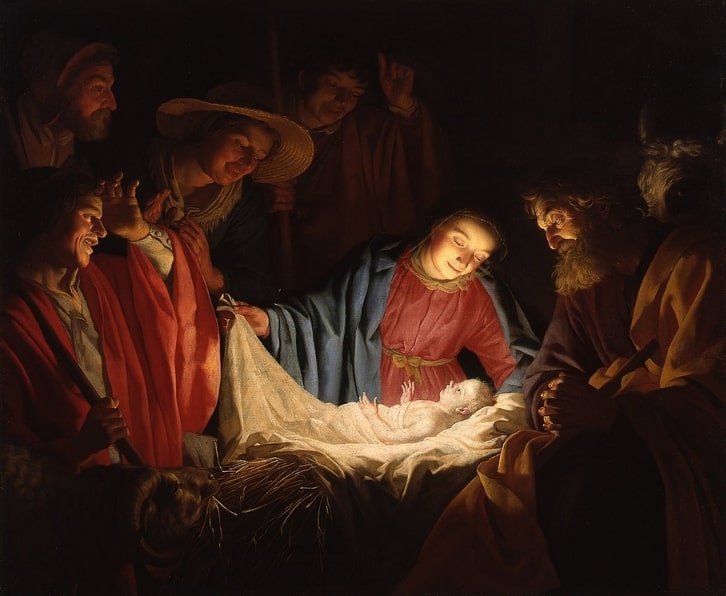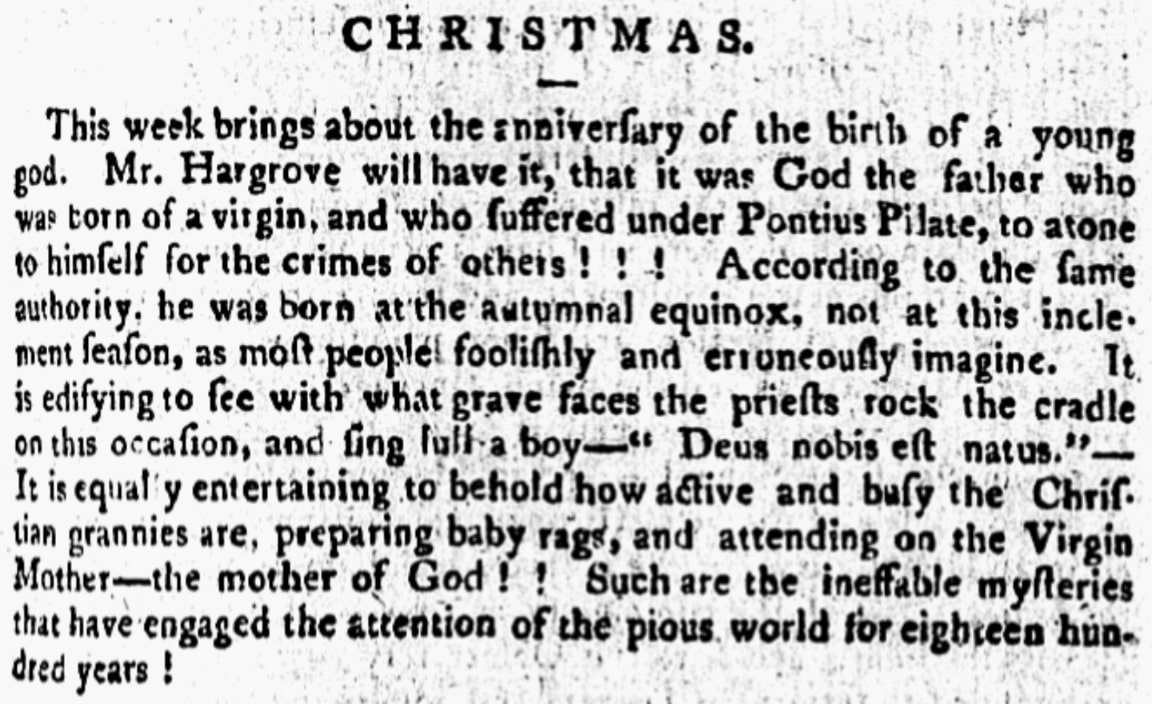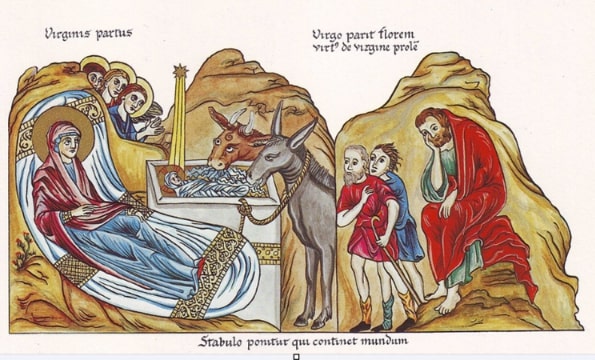Introduction: In this article, Katie Rebecca Garner writes about how some of our ancestors c. 1800 were concerned there wasn’t enough Christ in Christmas. Katie specializes in U.S. research for family history, enjoys writing and researching, and is developing curricula for teaching children genealogy.
Religious people of our day emphasize keeping Christ in Christmas. With holiday parties, gift shopping, baking, and charity donations to keep up with, it can be easy to forget why we are even celebrating. The sentiment of remembering Christ at Christmas is nothing new – it was a concern of our ancestors as well. Newspaper writers and editors published about Christ’s birth in the late 1700s and early 1800s to remind their contemporaries what Christmas was about.

For example, a Philadelphia newspaper in 1801 reminded its readers that the upcoming holiday was “the anniversary of the birth of a young god.” It also stated that Christ was born on the autumnal equinox rather than in the winter “as most people foolishly and erroneously imagine.”

Some of these Christmas messages went viral the old-fashioned way: newspaper editors reprinting things they saw from other newspapers. One such article was written by Clemens Alexandrinus, initially published on 26 December 1799 in Elizabeth Town, New Jersey, and then reprinted in Philadelphia on 2 January 1800.
Clemens Alexandrinus lamented “a sparseness of that genuine evangelical spirit which actuated the Eastern Magi, as to cause this holy day [Christmas] to pass into a careless and contemptuous neglect.” He could not believe this had happened in places influenced by the gospel.
Christmas celebrations were at a low point between the Reformation and the Victorian era.* Some religions saw certain Christmas traditions as unholy, while contemporaries thought that neglecting Christmas altogether was failing to pay respect to Christ’s birth.
That level of respect was shown by C. C. Sturm, who wrote a lengthy article about Christmas, praising God.
He opened his article by saying: “What sentiments of gratitude and joy arise in my soul this day, on which we celebrate the birth of Jesus.” He went on to describe the glory and greatness of God and contrasted it with the humiliation of being born in a stable and lying in a manger as a small, weak child. He then contrasted his own unworthiness with the “infinite majesty of our Saviour [sic].” He described God’s love as “a love which infinitely surpasses all I can merit.” He continued by stating that God sent his son to give us eternal life, and that Christ’s purpose in coming was to pardon faults and wipe out sins.
After this lengthy praise, Sturm focused on celebrating Christmas to show gratitude. He wrote:
What then is more natural and just, than to give ourselves up entirely, on this solemn day, to a sense of pious gratitude? It is true, that little is in our power to return for such inestimable love; but, let us at least do that little, and hope that our weak but sincere gratitude will be pleasing in his sight. Such are the sentiments with which we ought to celebrate this solemn festival.
Whatever concerns our ancestors may have had about keeping Christ in Christmas, some alleviated that concern by using newspaper messages to remind their contemporaries why they were celebrating Christmas. Whatever your reason is for celebrating Christmas, please take a moment to reflect on it. Perhaps you can post about it on social media, the modern descendant of newspapers.
Explore over 330 years of newspapers and historical records in GenealogyBank. Discover your family story! Start a 7-Day Free Trial
Note on the header image: “Nativity of Christ,” medieval illustration from the “Hortus Deliciarum” of Herrad of Landsberg, c. 1180. Credit: Wikimedia Commons.
* Gulevich, T., & Stavros-Lanning, M. A. (2000). America, Christmas in Colonial. In Encyclopedia of Christmas: Nearly 200 alphabetically arranged entries covering all aspects of Christmas, including folk customs, religious observances, history, legends, symbols, and related days from Europe, America, and around the world. essay, Omnigraphics; Collins, A. (2003). Stories behind the great traditions of Christmas. Zondervan.
